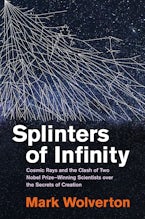This is the engaging story of a moment of transformation in the human sciences, a detailed account of a remarkable group of people who met regularly from 1946 to 1953 to explore the possibility of using scientific ideas that had emerged in the war years (cybernetics, information theory, computer theory) as a basis for interdisciplinary alliances. The Macy Conferences on Cybernetics, as they came to be called, included such luminaries as Norbert Wiener, John von Neumann, Margaret Mead, Gregory Bateson, Warren McCulloch, Walter Pitts, Kurt Lewin, F. S. C. Northrop, Molly Harrower, and Lawrence Kubie, who thought and argued together about such topics as insanity, vision, circular causality, language, the brain as a digital machine, and how to make wise decisions. Heims, who met and talked with many of the participants, portrays them not only as thinkers but as human beings. His account examines how the conduct and content of research are shaped by the society in which it occurs and how the spirit of the times, in this case a mixture of postwar confidence and cold-war paranoia, affected the thinking of the cybernetics group. He uses the meetings to explore the strong influence elite groups can have in establishing connections and agendas for research and provides a firsthand took at the emergence of paradigms that were to become central to the new fields of artificial intelligence and cognitive science. In his joint biography of John von Neumann and Norbert Wiener, Heims offered a challenging interpretation of the development of recent American science and technology. Here, in this group portrait of an important generation of American intellectuals, Heims extends that interpretation to a broader canvas, in the process paying special attention to the two iconoclastic figures, Warren McCulloch and Gregory Bateson, whose ideas on the nature of the mind/brain and on holism are enjoying renewal today.
Steve J. Heims, once a research physicist, has devoted his attention to the history of twentieth century science for the past two decades.
The open access edition of this book was made possible by generous funding from Arcadia – a charitable fund of Lisbet Rausing and Peter Baldwin.













